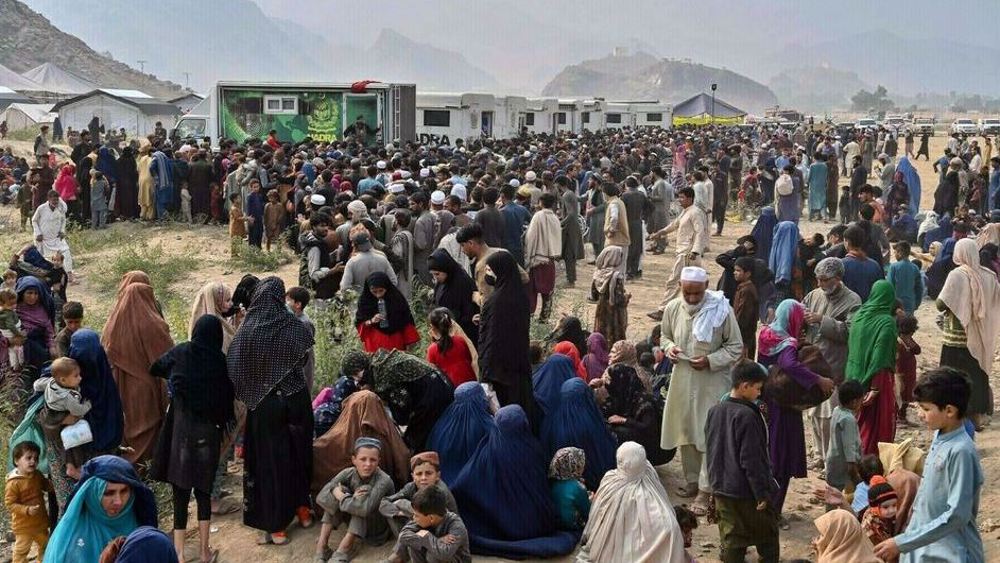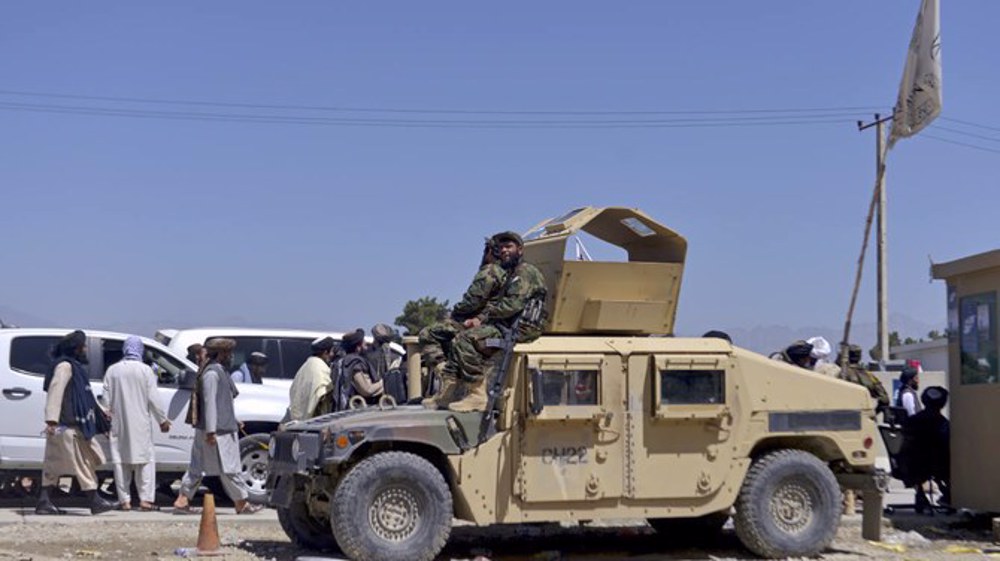West refusing to accept 44,000 Afghan helpers stranded in Pakistan
At least 44,000 Afghans approved for relocation to Western nations following the Taliban's return to power are still waiting in limbo in Pakistan.
More than 120,000 people, mostly Afghans, were airlifted from Kabul in a chaotic evacuation after the Western-backed government collapsed in August 2021.
Hundreds of thousands more Afghans have fled since then, with many promised new lives in the nations involved in their country's 20-year occupation.
The exodus was triggered by the humiliating withdrawal of Western forces from Afghanistan and the Taliban's sudden takeover of the country. Afghan people who had worked for the occupying forces feared retribution and attempted to relocate to the West, preferably the United States.
US lawmakers, who had initially agreed to take in all the Afghan employees serving the foreign forces, walked backed on the decision. Other Western countries are also refusing to accept those they had initially accepted for relocation, leaving tens of thousands of Afghans stranded.
Pakistani foreign office spokeswoman Mumtaz Zahra Baloch said Thursday that three years after the Taliban takeover, there were still 25,000 Afghans approved for relocation to the US living in Pakistan.
A further 9,000 Afghans resident in Pakistan have been accepted by Australia, as have 6,000 by Canada, 3,000 by Germany and more than 1,000 by Britain -- all yet to be relocated.
“Pakistan has been working with governments of Australia, Canada, Germany, the US, the UK, France and Italy who agreed to take a certain number of Afghan nationals,” Baloch said.
“For that we have remained engaged with them and we have urged them to expedite the approval and visa issuance process for these individuals so that they can relocate as early as possible,” she added.
Afghan refugees say the longer the refugees are forced to wait for visas in Pakistan, the higher the risks of being deported to Afghanistan.
US military forces' presence in countries like Iraq and Afghanistan relied heavily on support from thousands of locals who put themselves in danger to serve alongside foreign troops, diplomats, and contractors.
They provided intelligence, linguistic, cultural, and geographic information to the occupying forces. This cooperation with the foreign forces put them at great risk of retribution by their compatriots who saw them as traitors.
Since 2006, the US Congress has established several Special Immigrant Visa (SIV) programs to allow eligible applicants to resettle in the United States. After the fall of Kabul, thousands of Afghans who had filed such refugee resettlement applications entered neighboring Pakistan.
But three years on, they remain trapped in legal limbo, while facing persistent threats for their collaboration with the US.
Islamabad says the country currently hosts nearly three million Afghans, with close to 2.4 million possessing some form of legal documentation.
Some 600,000 Afghans have traveled to Pakistan since the Taliban took over, but faced with the threat of arrest and eviction, more than half a million have crossed back into Afghanistan.
More than 70 percent of the 3.6 million Afghans who left their country after the Taliban seized back power in August 2021 fled to Iran, but many Iranians believe their real numbers are much higher, presenting the country with numerous social, economic and political challenges.
VIDEO | Press TV's news headlines
VIDEO | Iran will not 'capitulate' since it has military surprises for US
China overtakes US as Germany’s top trading partner
VIDEO | Displaced Gazans struggle to find clean water amid Ramadan
VIDEO | Pakistan strikes militant camps along Afghan border after suicide bombings
Iran FM: Chance still exists for win-win solution to nuclear issue
Denmark rejects Trump's plan to send US hospital ship to Greenland
US Secret Service kills man trying to enter Trump’s Mar-a-Lago estate











 This makes it easy to access the Press TV website
This makes it easy to access the Press TV website